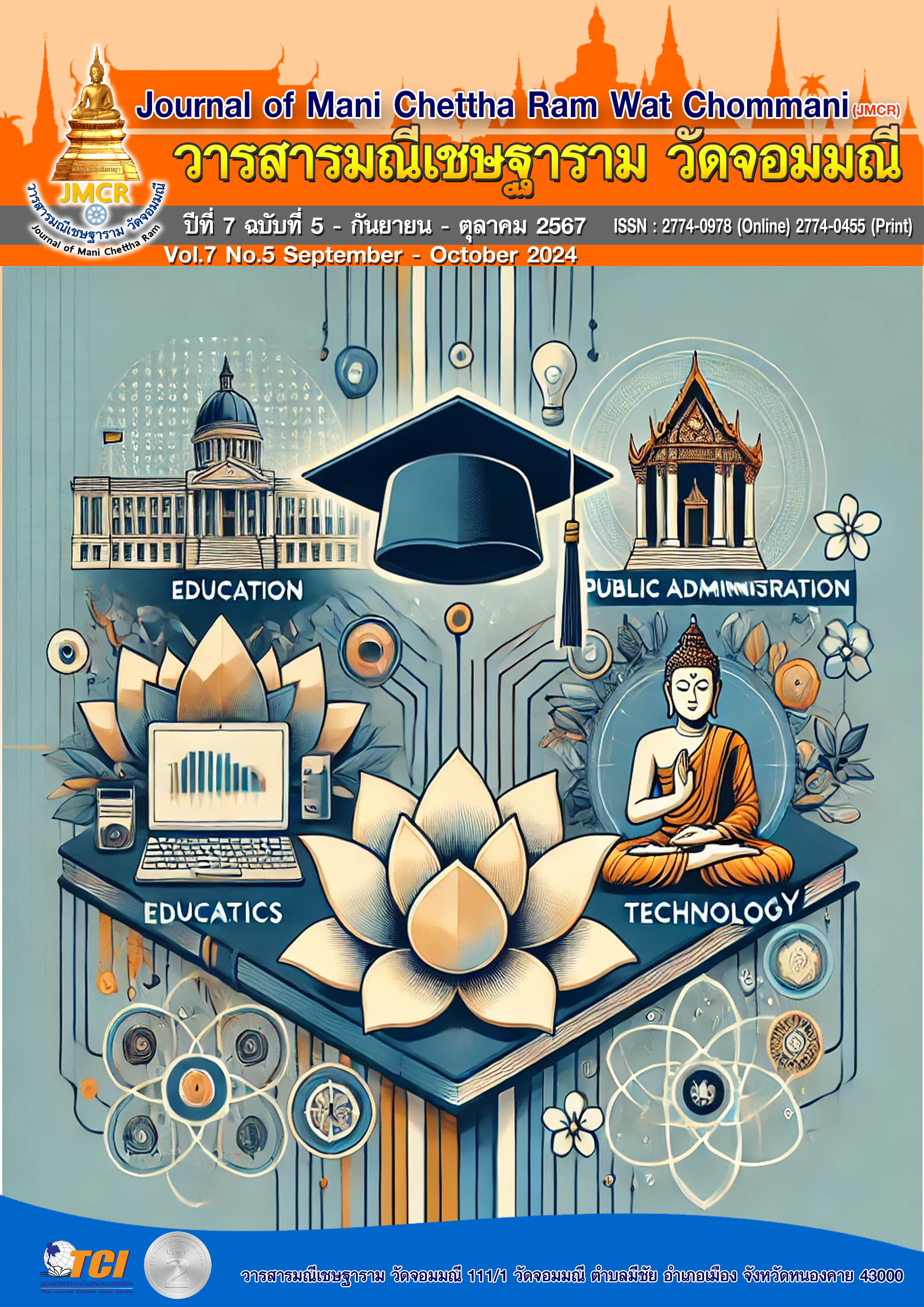THE EMPOWERMENT OF EDUCATIONAL INSTITUTION ADMINISTRATORS FOR THE DIGITAL AGE
Keywords:
The Development of School Administrators, Digital Era, Digital SkillsAbstract
In the contemporary digital age, cultivating school administrators presents a formidable challenge due to the rapid evolution of technology. Consequently, it is imperative for educational institution administrators to cultivate the requisite skills and competencies to effectively guide their organizations through these changes. This article endeavors to outline guidelines for the development of school administrators in the digital era.
The study revealed that administrators in educational institutions during the digital era must prioritize the following five areas: 1. Proficiency in digital technology skills. 2. Cultivating an organizational culture that fosters innovation. 3. Establishing effective structures for information and communication.
4. Developing strategies for training educational institution administrators in the digital era. 5. Facilitating networking and collaboration with various sectors.
According to this study, it is imperative for school administrators in the digital era to possess a comprehensive understanding of technology. Educational administrators must cultivate knowledge about the cyber world, technology safety, and develop essential skills required in the digital age.
References
กระทรวงศึกษาธิการ. (2564). การพัฒนาผู้บริหารการศึกษาสำหรับศตวรรษที่ 21. กรุงเทพมหานคร: กระทรวงศึกษาธิการ.
ชาญณรงค์ บุญหนุน. (2563). การศึกษากับความเป็นผู้นำในยุคดิจิทัล. วารสารการบริหารการศึกษา, 32(1), 15–28.
ศิริลักษณ์ โชควิวัฒน์. (2562). การเปลี่ยนแปลงทางการศึกษาในยุคดิจิทัล. วารสารเทคโนโลยีการศึกษา, 27(2), 95-108.
สมาคมการศึกษาแห่งประเทศไทย. (2565). เทคโนโลยีสารสนเทศในการบริหารจัดการสถานศึกษา. เชียงใหม่: สมาคมการศึกษาแห่งประเทศไทย.
Fullan, M. (2020). Leading in a Culture of Change. Jossey-Bass.
Hallinger, P., & Heck, R. H. (1998). Exploring the principal’s contribution to school effectiveness: 1980–1995. School Effectiveness and School Improvement, 9(2), 157–191.
Hamilton, L. S., & Stecher, B. M. (2016). Using Data to Improve School Effectiveness. Rand Corporation.
Highsmith, J. (2009). Agile Project Management: Creating Innovative Products. Addison-Wesley Professional.
Hobbs, R. (2010). Digital and media literacy: A plan of action. The Aspen Institute.
Leithwood, K., & Jantzi, D. (2006). Transformational school leadership for large-scale reform: Effects on students, teachers, and their classroom practices. School Effectiveness and School Improvement, 17(2), 201–227.
Robinson, V. M. J. (2011). Student-Centered Leadership. Jossey-Bass.
UNESCO. (2020). Embracing a culture of lifelong learning: Contribution to the Futures of Education initiative. UNESCO Publishing.
Wagner, T. (2018). The Global Achievement Gap: Why Even Our Best Schools Don’t Teach the New Survival Skills Our Children Need—and What We Can Do About It. Basic Books.
Zhao, Y. (2019). Teaching in the Digital Age: How Educators Use Technology to Improve Learning Outcomes. Routledge.




